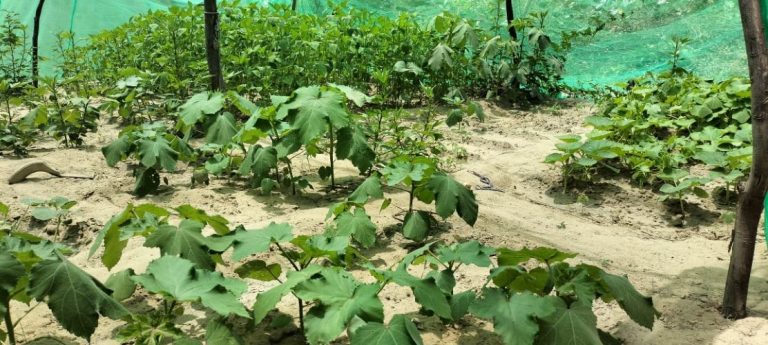
Through the use of efficient irrigation systems like drip irrigation and sprinklers, farmers can minimize water wastage
By Vikram Menghwar
Tharparkar region, after rain, is a magical place that personifies the beauty of nature. The desert is known for its harsh and unforgiving conditions but, when rain falls on the dunes, it transforms into a breathtaking landscape filled with life and colors. The scent of the desert after rain is something that cannot be described just in words. It is a mixture of fresh earth, wet sand, and blooming flowers. The air is refreshing, and the serenity is only broken by the sound of raindrops falling on the sand.
Thar region in Pakistan is known for its harsh climate and arid conditions, which can make agriculture a challenging task. In recent years, however, a shift towards sustainable development through Climate Smart Agriculture (CSA) has begun to bring positive changes to the region. By implementing CSA practices, Tharparkar has the potential to significantly improve its agricultural productivity while mitigating the impact of climate change.
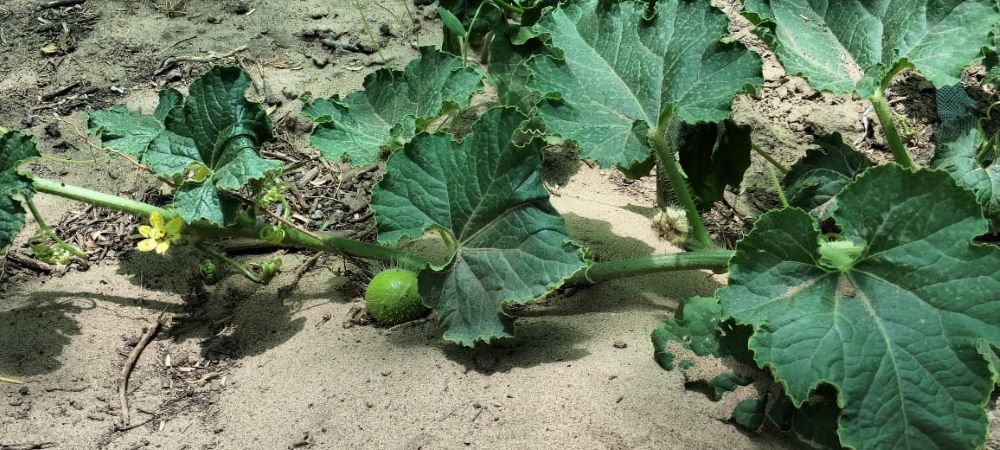 Tharparkar is known for its extreme weather conditions, with scorching summers and limited rainfall. This poses a significant challenge for farmers, as water scarcity is a common issue. Traditional farming methods that rely heavily on water-intensive crops have proved to be unsustainable, leading to soil degradation and decreased agricultural productivity. In recent years, however, CSA techniques have proven to be a promising solution.
Tharparkar is known for its extreme weather conditions, with scorching summers and limited rainfall. This poses a significant challenge for farmers, as water scarcity is a common issue. Traditional farming methods that rely heavily on water-intensive crops have proved to be unsustainable, leading to soil degradation and decreased agricultural productivity. In recent years, however, CSA techniques have proven to be a promising solution.
Another important element is the adoption of climate-resilient crops and varieties
One of the key aspects of CSA in Tharparkar is the focus on water management and conservation. Through the use of efficient irrigation systems such as drip irrigation and sprinklers, farmers are able to minimize water wastage and ensure that the limited water resources are utilized effectively. Additionally, the practice of rainwater harvesting has gained popularity, allowing farmers to collect and store rainwater during the monsoon season for future use.
Another important element of CSA in Tharparkar is the adoption of climate-resilient crops and varieties. Farmers are encouraged to cultivate crops that are well-suited to the local climate and have a higher tolerance to drought and other extreme weather conditions. These include crops like millet, sorghum, and pulses, which require less water and can withstand the harsh conditions of Tharparkar. By diversifying their crop selection, farmers can reduce their dependence on a single crop and increase their overall resilience to climate change.
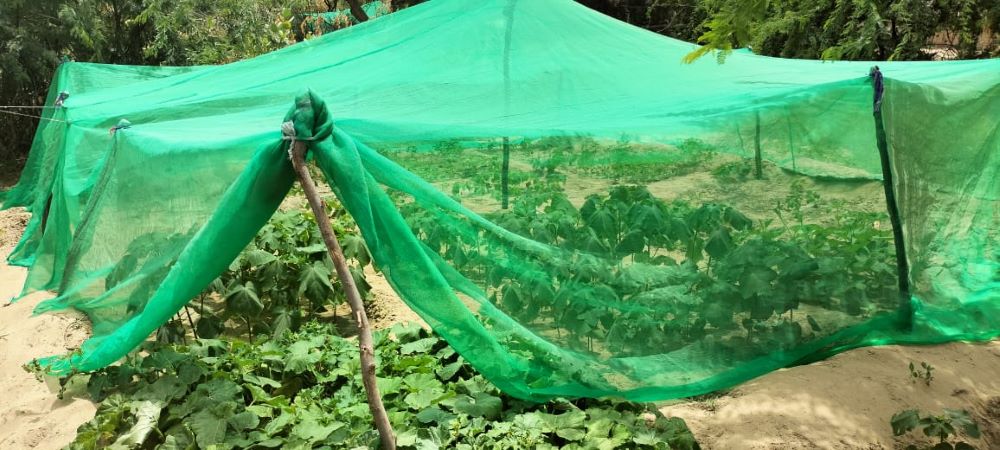 In addition to water management and crop diversification, CSA in Tharparkar also emphasizes soil conservation and organic farming practices. The region’s sandy soil is prone to erosion, which can lead to land degradation and reduced agricultural productivity. By implementing techniques like contouring, mulching, and the use of organic fertilizers, farmers can prevent soil erosion and improve soil fertility. This not only helps to sustain agricultural production but also promotes soil health and biodiversity.
In addition to water management and crop diversification, CSA in Tharparkar also emphasizes soil conservation and organic farming practices. The region’s sandy soil is prone to erosion, which can lead to land degradation and reduced agricultural productivity. By implementing techniques like contouring, mulching, and the use of organic fertilizers, farmers can prevent soil erosion and improve soil fertility. This not only helps to sustain agricultural production but also promotes soil health and biodiversity.
By implementing techniques like contouring, mulching, and the use of organic fertilizers, farmers can prevent soil erosion and improve soil fertility
Furthermore, CSA in Tharparkar encourages the use of renewable energy sources to power farming operations. Solar-powered pumps and irrigation systems reduce reliance on fossil fuels and provide a sustainable and cost-effective solution for farmers. These renewable energy technologies not only contribute to reducing greenhouse gas emissions but also provide farmers with reliable access to energy for their farming activities.
The adoption of CSA practices in Tharparkar has already shown promising results. Farmers who have implemented these techniques have reported increased crop yields, improved water efficiency, and enhanced soil health. These success stories serve as inspiration for other farmers in the region to embrace sustainable agriculture practices and contribute to the overall development of Tharparkar.
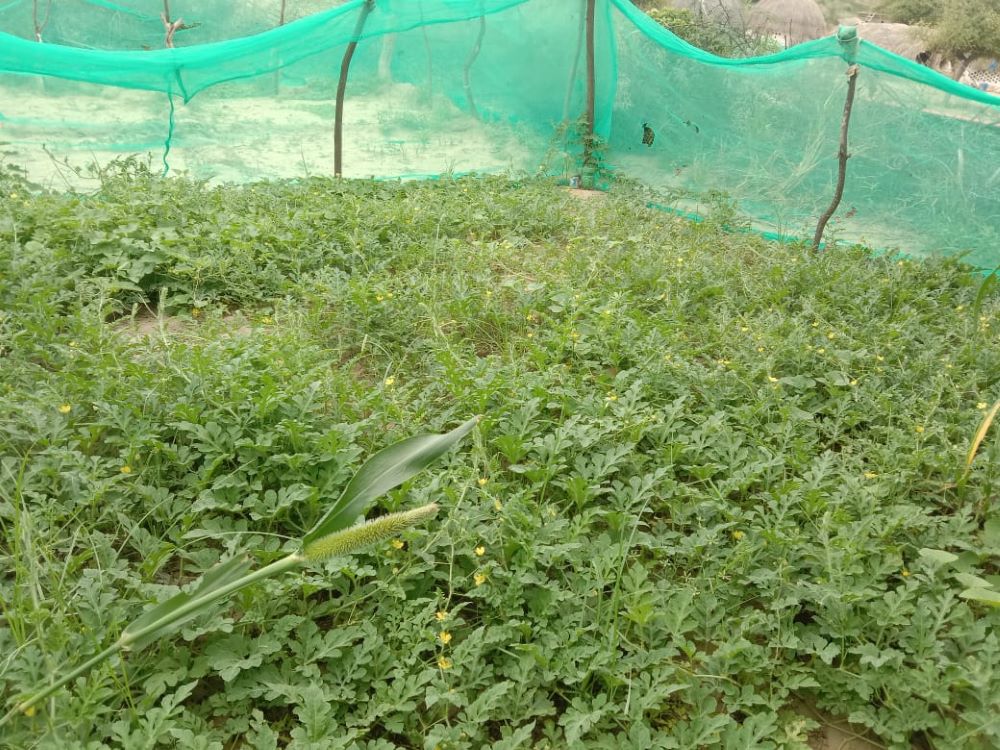 In addition to the on-ground implementation of CSA, awareness and capacity-building programs play a crucial role in promoting sustainable agriculture in Tharparkar. Farmers need to be educated about the benefits of CSA and provided with training and resources to implement these practices effectively. Government agencies, non-profit organizations, and agricultural extension services have a significant role to play in providing technical assistance and support to farmers in adopting CSA techniques.
In addition to the on-ground implementation of CSA, awareness and capacity-building programs play a crucial role in promoting sustainable agriculture in Tharparkar. Farmers need to be educated about the benefits of CSA and provided with training and resources to implement these practices effectively. Government agencies, non-profit organizations, and agricultural extension services have a significant role to play in providing technical assistance and support to farmers in adopting CSA techniques.
The shift towards sustainable development through CSA in Tharparkar is not only beneficial for the local agricultural economy but also contributes to global efforts to combat climate change. By adopting climate-resilient practices, Tharparkar can reduce its vulnerability to the impacts of climate change and contribute to sustainable development goals.
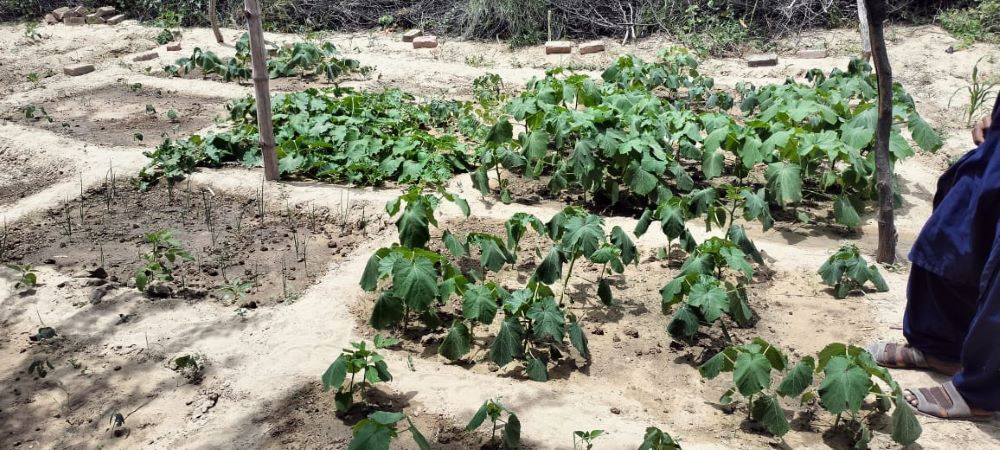 In conclusion, Tharparkar’s agricultural sector faces significant challenges due to its arid and harsh climate. However, by implementing Climate Smart Agriculture techniques, the region has the potential to overcome these challenges and achieve sustainable development. Through water management, crop diversification, soil conservation, and the use of renewable energy, farmers in Tharparkar can improve their agricultural productivity while mitigating the impacts of climate change. Additionally, awareness and capacity-building initiatives are crucial to ensure the widespread adoption of CSA techniques. By embracing sustainable agriculture, Tharparkar can create a more resilient and prosperous future for its farming communities, contributing to the overall development of the region.
In conclusion, Tharparkar’s agricultural sector faces significant challenges due to its arid and harsh climate. However, by implementing Climate Smart Agriculture techniques, the region has the potential to overcome these challenges and achieve sustainable development. Through water management, crop diversification, soil conservation, and the use of renewable energy, farmers in Tharparkar can improve their agricultural productivity while mitigating the impacts of climate change. Additionally, awareness and capacity-building initiatives are crucial to ensure the widespread adoption of CSA techniques. By embracing sustainable agriculture, Tharparkar can create a more resilient and prosperous future for its farming communities, contributing to the overall development of the region.
______________
Vikram Menghwar, hailing from Village Bhit Bhaiti, Taluka Khipro, District Sanghar, graduated from Department of Soil Science, Sindh Agriculture University, Tando Jam, is currently working at Participatory Village Development Program (PVDP) Islamkot, Tharparkar Sindh